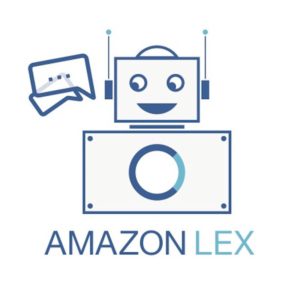 Contact center technology and Conversational AI shared the main stage at the re-convened AWS re:InVent as Amazon Web Services (AWS) made several announcements about new partnerships and offers surrounding its Contact Center Intelligence (CCI) solutions. Announcements focused on new partnerships, expanded language coverage and a few success stories.
Contact center technology and Conversational AI shared the main stage at the re-convened AWS re:InVent as Amazon Web Services (AWS) made several announcements about new partnerships and offers surrounding its Contact Center Intelligence (CCI) solutions. Announcements focused on new partnerships, expanded language coverage and a few success stories.
Amazon Web Services (AWS) announced its Contact Center Intelligence (CCI) solutions in August 2020. At the time, it was pretty much a “me-too” response to Google’s introduction of Contact Center AI (CCAI) in May 2018, that’s more than two years prior. Even though I quoted a colleague calling CCAI a “backward-looking” product at the time, Google has been able to establish a significant head start in bringing Conversational AI closer to commodity status.
In the ensuing years, the two tech giants have steadily refined their core Natural Language Processing (NLP) and Machine Learning (ML) chops and added to the list of technology and go-to-market partners. Google has been able to leverage its acquisition of what was then called API.ai into the wildly popular Dialogflow NLP resource. Late-arriving AWS leveraged Lex, the speech processing/NLU engine that powers Alexa on smart speakers and devices, augmented by Kendra, an intelligent search and retrieval engine.
Agent assistance is another offering that both Google and Amazon support. Both deploy conversational analytics to serve suggestions for scripts or next-best actions during a call, chat or messaging session. To support the conversational user interface among customers, agents and virtual agents, both constantly refine automated speech recognition, text-to-speech rendering and translation services. Both features improved sentiment or emotion detection in support of market demand for more empathy from both intelligent virtual assistants (VAs) and human customer service representatives or agents. Collectively they have turned what once were “bleeding edge” technologies into table stakes or mere features in a broader product offering.
Applying NLU and analytics after a call to support summation, analytics and sentiment analysis is the other area where both companies offer resources. This is an opportunity area where contact center managers see great justification for investment based on making agents more productive and detecting and remediating customer concerns.
Commodities Cultivate Ecosystems
With a platform of features that are functional equivalents, Google and AWS now compete based on their geographic network of partners and resellers. Partnerships comprised a big part of the AWS CCI press release on January 21, 2021. It included contact center partners 8×8, Avaya and Vonage along with expanded opportunities with Talkdesk. Inference Solutions is listed as a member of the CCI partner network, which means that its new owner, Five9, will be considered a friend.
Obviously, none of these relationships are exclusive. Avaya, Genesys and Five9 were among the first to associate with Google CCAI and begin developing use cases on behalf of their enterprise customers. What’s more, by popular demand, established EIA solutions providers have opened their development platforms to support connections with 3rd Party ASR, NLU, translation and analytics. This is market driven and, our empirical observation is that APIs for IBM Watson and Google DialogFlow are the most popular APIs or connectors.
Part of the Ubiquitous Virtual Assistance Opportunity Area
Every individual and enterprise in the world already benefits from the commoditization of Conversational AI. Google has trained the world to carry out search in “natural language” whether they talk to an assistant or type their queries into a search box. Alexa (powered by Amazon’s Lex) plays an important role in expanding people’s expectations for carrying out routine commerce and completing tasks in natural language.
Both Amazon and Google have invested billions of dollars in the personnel, compute power and cloud storage required to build the language models and such to make conversational commerce possible. Their peers, in this respect are Facebook, Apple, IBM and Microsoft. Google was first to forge ahead with packaging designed to bring conversational AI’s to enterprise contact centers, but it is now becoming a crowded space where the projects that once required teams of developers and expensive compute resources can now be accomplished by having subject matter experts and departmental execs employ tools that bring in the expensive resources from Amazon, Google and others on an as-needed, pay-per-use basis.
It is also an opportunity area where behemoths like Google and Amazon co-exist or cooperate with firms that have specialize in Enterprise Intelligent Assistants, which is the topic of Opus Research’s forthcoming “Decision Makers’ Guide” which will be issued later in January 2021. The firms under investigation include (in alphabetical order): [24]7.ai, Artificial Solutions, ASAPP, Cognigy, Creative Virtual, IBM Watson, Inference Solutions, Interaction, Kore.ai, Nuance, Omilia, Uniphore and Verint. Collectively they area accelerating CX along the path to ubiquitous intelligent assistants.
Categories: Intelligent Assistants

 2025 Conversational AI Intelliview: Decision-Makers Guide to Self-Service & Enterprise Intelligent Assistants
2025 Conversational AI Intelliview: Decision-Makers Guide to Self-Service & Enterprise Intelligent Assistants  Talk to the Web: How NLWeb Opens Conversational Access to Site Content
Talk to the Web: How NLWeb Opens Conversational Access to Site Content  Battling ‘Botenfreude’: The Power of People and Policy
Battling ‘Botenfreude’: The Power of People and Policy  Voice AI Agents Redefine CX: Trends, ROI, and Strategies for 2025
Voice AI Agents Redefine CX: Trends, ROI, and Strategies for 2025